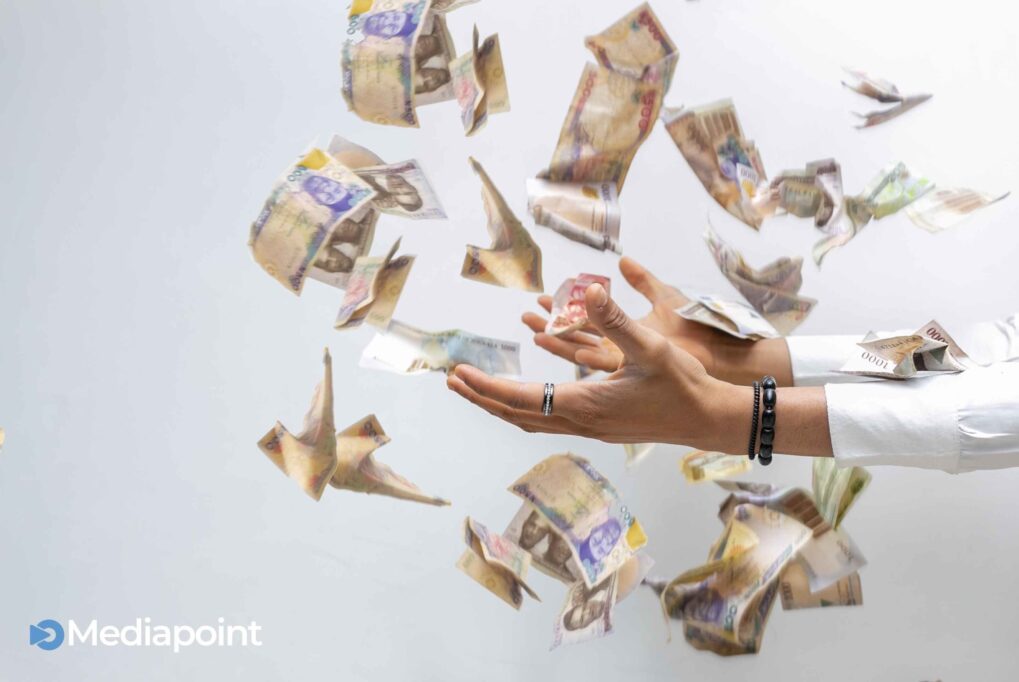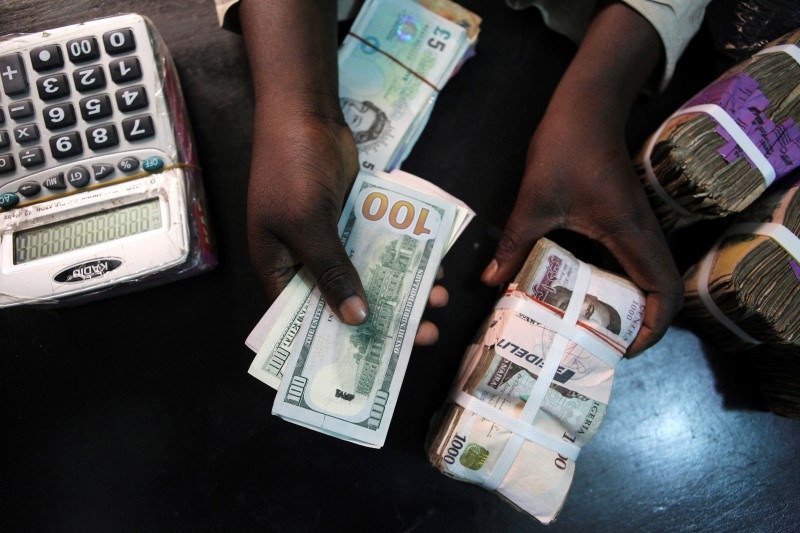After years of pleas from expert economists, the Nigerian government floated the naira. The naira float means its value will be determined by market forces, instead of a fixed rate that doesn’t change, come rain, come shine.
The Internet is filled with explainers (we also did ours, by the way) on how this will affect people and businesses in Nigeria, but it’s time to start asking the hard questions. Most explanations on the naira float focus on an ideal scenario, but things are rarely ideal in the real world, especially in Nigeria.
Why? Because this is not the first time Nigeria is floating the currency. Ready for a history lesson?
Nigeria’s ill-fated naira float

It’s May 2016 and the dollar is exchanging for ₦199/$1 on the official market. The CBN governor, Godwin Emefiele, sits alongside other executives at a press conference. This follows the conclusion of the monetary policy committee meeting, a bi-monthly meet-up that determines Nigeria’s financial policy direction.
The governor announces that the country will be embracing a “flexible exchange rate”. This news, like today’s news, is greeted with rave reviews. Oil prices are falling, the dollar has become scarce, and the country has multiple exchange rates, it makes no sense to stick with a hard peg which will spook investors and drive the black market.
But few people notice the float is half-hearted. The governor says the government will retain the official rate for “critical transactions”.
The float becomes official by June 20, 2016, and the naira, of course, tumbles to ₦280/$1 just 1 day later. The black market responds favourably, moving from ₦347/$1 to ₦337/$1. The CBN is optimistic that official and black markets would merge and the naira will settle around ₦250/$1.
Isaac Okorafor, a CBN spokesman, tells journalists that the bank is determined to intervene regularly according to the dynamics of the market. He expects the market to continue evolving steadily as more money comes into the country.
By April 2017, everything is changing. Okorafor deems any advice on naira float “laughable”, stating that, “no country floats its currency, and just leaves it to the dictates of the market.”
Now we’ve gotten to the heart of the matter. Naira has gone up to ₦300/$1, and the black market does not merge with interbank rates as hoped. It reaches an all-time low of ₦525/$1.
What happened to all the benefits of the naira float?
Just so we’re clear, at this point, the CBN has abandoned any pretence of maintaining a floating naira and plans to introduce new windows. As weird as this sounds, the CBN has its reasons.
Bad market conditions and actors
The 2016 naira float policy does not meet a ready and able market that Nigerians can leverage, and bad actors swoop in at every chance.
Let’s hear the CBN’s spokesman out.
“We are 180 million people, our infrastructure is so poor and the productive capacity cannot be fast enough to rise to benefit from massive depreciation. If you float the naira today, and given recent discoveries by security agencies, you’ll discover that our case will be terrible. Egypt today has an inflation rate of almost 31%, and Angola also has about 36% inflation, ours is at 17.26%.”
He explains that if Nigeria floats the naira, it allows speculators, those with corrupt money, and people who create bubbles in the economy to launch into the market.
Apart from the obvious, what else is the spokesman implying?
There was never really any float
We’re looking at two issues with the CBN’s 2016 policy — half-hearted naira float and human panic. The government retains an official window for “critical transactions” which it doesn’t define, and it isn’t ready to watch the naira rise and fall as it should in a free market.
Floating currencies like the euro, rand, and Kenyan shilling, fluctuate with the Brexit news as expected. So does the naira black market. But Nigeria’s official currency window remains stable in response to the CBN’s interventions.
The cost of petrol
When Nigeria controls the price of fuel, the price goes up if the naira value falls. Unlike now in 2023 when Nigeria’s government no longer deals with fuel subsidies (on paper at least), setting a floating currency while controlling petrol prices causes problems.
Not to bore you with the details, let’s breeze through what happened in bullet points.
- CBN announces the naira float but intervenes in the market to clear the backlog of unmet demand for the dollar. It then pulls out of the market and stops selling to banks.
- Banks turn to oil companies to buy dollars from them with auctions. But the CBN stops this process and tells oil companies to sell to petrol importers instead.
- After selling to petrol importers, oil companies have to sell leftovers to the CBN.
All of this is done to keep the price of petrol down, but it creates further FX scarcity.
Even more interventions
The CBN starts selling FX to BDC operators and tells banks to do the same. It then asks them to allocate 60% of their forex sales to manufacturing equipment, and 40% to anything that’s not banned.
Investors discover this, get spooked, dollars dry up, and Nigeria is back to square one.
What happens next?
The CBN creates new windows, called the Investor/Exporter window (I & E Window) — to help investors and exporters trade closer to market rates — and the SME window. This brings back investor confidence, dollars roll in, and CBN is pumping dollars into the economy again.
If you’re familiar with current news, you know how this story ends. Nigeria gets all of the pains of devaluation and none of the benefits.
What’s different now?

Reading this in 2023, I’m sure you’re already asking, “what stops the CBN from dragging us back to square one again?”
A full-hearted naira float
This policy, on paper, is more of a fully committed float than the ill-fated 2016 announcement. The CBN does not retain an exchange rate for “critical transactions” but is agreeing to buy dollars at the rate the market closes the day before. i.e. If the market opens on Tuesday, CBN will buy at Monday’s closing rate.
Fuel subsidy removal
The naira float of 2023 is meeting a Nigeria without fuel subsidy. On paper, the petroleum industry could become a free market, and the government no longer determines the price of petrol.
The Nigerian National Petroleum Company Limited (NNPCL) says it will no longer be the sole supplier of petrol as there will be other licenced importers in the market.
With these conditions, the government no longer needs to provide dollars to control petrol costs in the country.
What has not changed?
Two points Okorafo made in 2017 are still valid today, in 2023.
Nigeria’s reliance on imports
Infrastructure and production capacity has not improved to match our growing population. In 2017, this was 180 million, but current estimates are putting it at 220 million people.
If Nigeria is not producing and exporting more than it imports, inflation will set in. Possibly to a point where it forces the CBN’s hand.
Corruption is still very rampant
Bad actors, speculators, and corruption in high and low places are still rampant in Nigeria. Transparency International ranks Nigeria 24 on a scale of 0 – 100, where 0 is highly corrupt and 100 is very clean.
Yes, the CBN will intervene to referee the market, but how much can it really stop before we’re back to square one again?
Conclusion
What have we learnt so far?
- CBN floated the naira in 2016, but a range of circumstances forced it to go back on its word and intervene in what was meant to be a free market.
- The CBN’s actions sent the naira in free fall from ₦347/$1 in the black market in 2016 to ₦750/$1 in 2023.
- Some elements of those circumstances remain in 2023, and Nigeria will need beyond currency unification.
What the CBN does in the next year will shape long-term investor confidence in the country, its purchasing power, and its economic growth.
With this context in mind, we’d love to hear what you think about the CBN’s latest policies, especially the naira float, and their possible impact. Do you see the CBN sticking this out? Or will human nature win again?











